Exclusive – US Says Panama Has ‘De-Flagged’ 30 Iranian Vessels
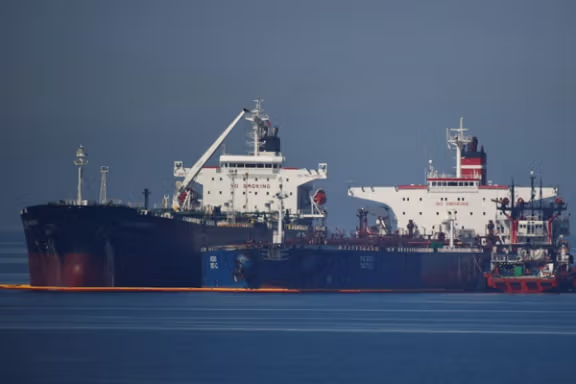
The United States says that Panama has removed 30 Iranian vessels designated by Washington from its shipping registry, and they have been re-flagged as Iranian vessels.

The United States says that Panama has removed 30 Iranian vessels designated by Washington from its shipping registry, and they have been re-flagged as Iranian vessels.
A State Department spokesperson told Iran International’s Samira Gharaei Friday that the US Treasury Department updated its Specially Designated Nationals and Blocked Persons List (SDN list), marking the change in the status of these vessels.
“This SDN list update reflects the strong and long-standing partnership between the United States and Panama on respect for US sanctions in the maritime context.
We routinely work with Panama and other countries to ensure that their shipping registries are not abused by entities seeking to circumvent US sanctions on Iran.
Consistent with Panama’s domestic laws and international commitments, they have de-flagged hundreds of vessels since 2019,” the spokesperson said.
The US has designated hundreds of Iranian and other individuals, companies and vessels for suspected links to Tehran’s support for terror activities or assistance in Iran’s nuclear and missile programs.
There are also US sanctions on sectors of Iran’s economy as well as weapons programs. Many have also been designated for violating these US sanctions.
In most instances, US sanctions are also third-party sanctions, meaning any individual or entity breaking the rules will be separately be designated.
“We will continue to work with partners like Panama to ensure their registries and jurisdictions are not abused by entities attempting to evade our sanctions on Iran,” the State Department said.
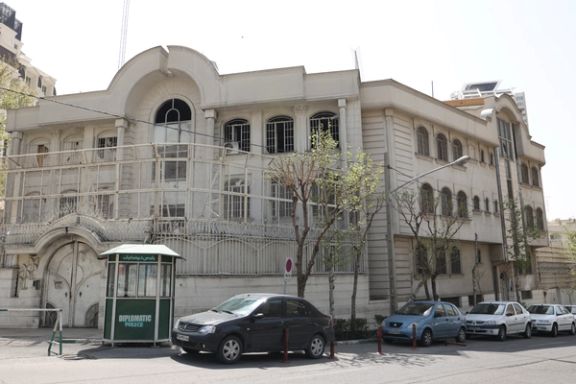
Saudi Arabia and Iran will open embassies in each other's capitals "within days," Iranian Foreign Minister Hossein Amir-Abdollahian said on Friday.
The two countries agreed March 10 to revive relations after years of hostility, with China’s mediation.
Speaking at a news conference in the Lebanese capital Beirut, Amir-Abdollahian did not give specific dates for the reopening of the embassies. The parties had agreed to restore full relations in two months.
The Iranian and Saudi embassies in the respective countries have been closed since 2016. The relationship started deteriorating in 2015 following the intervention of Saudi Arabia and the UAE in the Yemen war, after the Iran-aligned Houthi movement toppled the Saudi-backed government and seized control of the capital Sanaa.
Saudi Arabia accused Iran of providing weapons to the Houthis who attacked Saudi cities with armed drones and ballistic missiles. In 2019, Riyadh accused Tehran of being responsible for an attack targeting Aramco oil facilities, which resulted in stopping half of its oil production.
Iran denied those accusations.
The tension between the two regional rivals has fueled conflicts across the region, including the Syrian civil war.
"During the last phone call between the foreign ministers of Iran and Saudi Arabia on Eid al-Fitr, we agreed to work in the next coming days on the reopening of the Iranian and Saudi embassies in Tehran and Riyadh," Amir-Abdollahian said, according to the official Arabic translation.
When asked about a reported visit by Iranian President Ebrahim Raisi to Damascus, Amir-Abdollahian confirmed it, saying there was a "program" put in place for "the near future" without indicating a specific timeframe.
With reporting by Reuters
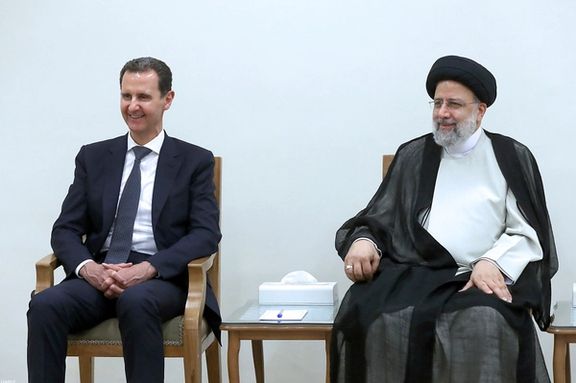
President Ebrahim Raisi is slated to travel to Damascus next week in the first visit by a head of the Iranian government to Syria in over a decade.
According to a senior regional source close to the Syrian government quoted by Reuters on Friday, a détente in ties between Riyadh and Tehran, as well as a thaw in Syria’s isolation among Arab states, have paved the way for the visit.
Since war broke out in Syria in 2011, no Iranian president has visited the country despite the Islamic Republic’s continuous military involvement and economic support to President Bashar al-Assad. Thanks to Iran and Russia, Assad was able to turn the tide of the conflict and regain control of most of his country.
The Syrian daily al-Watan, a privately owned government-aligned outlet, reported that Raisi's visit would last two days and a string of agreements, particularly on economic cooperation, would be signed during his stay.
Earlier this month, regional sources revealed that the Islamic Republic had been using the opportunity of earthquake relief to smuggle weapons and military equipment into Syriafollowing the devastating February earthquakes in Syria and Turkey. The fact that humanitarian relief is not subject to sanctions, makes it all the easier for Iran to capitalize on the catastrophe.
Syria became a key battleground between Iran and its adversaries, as Iran buttresses the threat from Israel and strengthens the Assad regime. Strikes in recent weeks by Israel have seen Iranian military figures killed from the Revolutionary Guards and Quds Force in Syria, as well as targeting weapons factories and infrastructure in Iran.
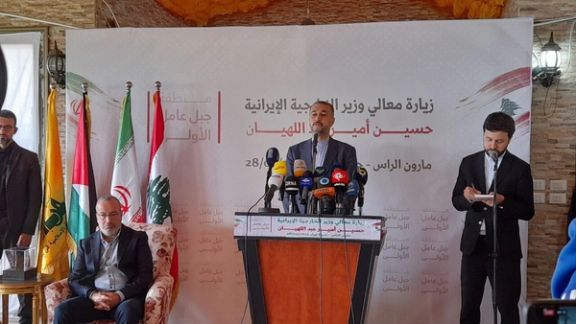
Iran’s foreign minister met with two of the regime's terror proxies during a visit to Lebanon, during which he was snubbed by Lebanese opposition.
Hossein Amir-Abdollahian, met with the head of Iran’s most dangerous proxy, Hezbollah, as well as the head of the Palestinian Islamic Jihad Movement (PIJ) while Lebanese politicians boycotted the diplomat after a request to meet at the Iranian embassy in Beirut.
The embassy had invited all parliamentary blocs to the meeting except for MP Michel Mouawad - a presidential candidate running against Hezbollah-backed Suleiman Franjieh - and nine members of the Change bloc.
According to Asharq al-Awsat newspaper, the embassy had only invited MPs Melhem Khalaf, Yassine Yassine and Elias Jradi from the Change bloc, disregarding others vocally opposed to Iran’s political interference in Lebanon where it funds its most dangerous proxy, Hezbollah.
The Kataeb Party, the National Liberal Party and a number of independent lawmakers had announced their boycott of the meeting, which was finally attended by only 16 out of 25 of the invited MPs, the majority from the Hezbollah-led camp.
Hezbollah is responsible for major terror attacks across the world and is designated a terror group by states including the US and UK, as well as the EU and the Arab League.
Amir-Abdollahian also held a meeting with Lebanese Prime Minister Najib Mikati, in which the regime’s leading diplomat urged political factions in Lebanon to speed up the presidential elections. Since former president Michel Aoun's term expired on 31 October, there has been no agreement on who shall succeed him.
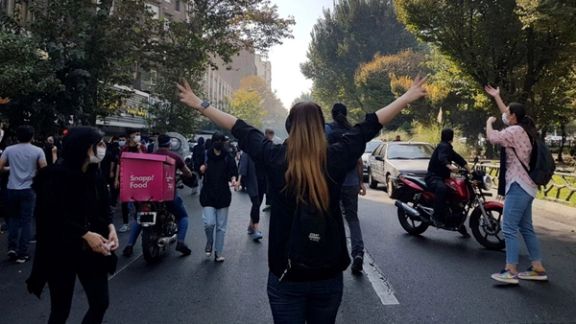
Worsened by revolutionary unrest, Iran jailed three times the number of writers in 2022 than 2021 as it cracked down on voices of dissent.
The findings, from PEN America’s latest Freedom To Write Index, puts Iran in second place globally, only beaten to the top spot by the dictatorship of China.
The crackdown on anti-government protests after the death in custody of 22-year-old Mahsa Amini in September led to the particular targeting of writers and artists alongside other cultural figures, celebrities and athletes.
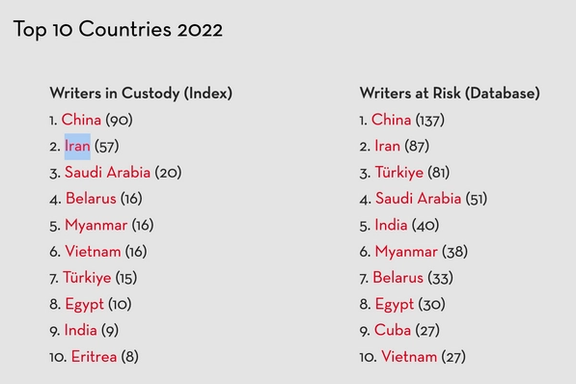
The numbers of those jailed rose from 22 in 2021 to 57, with one third of those behind bars now women, whose numbers rose from five to 16. The global study found that Iran jailed more than one-third of the total number of women writers jailed worldwide, 16 of 42 as the regime cracks down on the women led protests sparked by the death in custody of 22-year-old Mahsa Amini.
Some of the country’s leading voices have been severely punished, including Nasrin Sotoudeh, who was threatened with being returned to jail after speaking to or writing for international media outlets; author and activist Narges Mohammadi, who bravely continued to speak out from Evin prison; and writer Golrokh Ebrahimi Iraee, arrested in September.
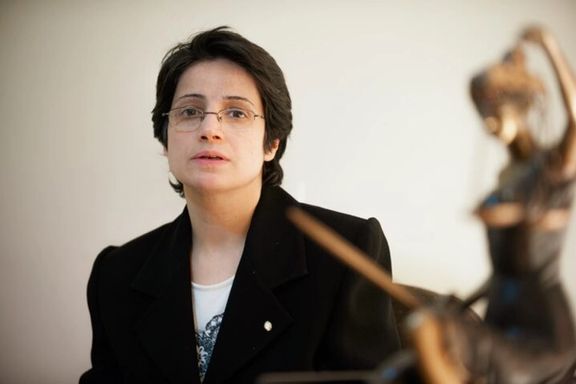
“Iran’s creative community—long at the forefront of fighting for free expression and human rights—was singled out as part of a broader crackdown on dissent in 2022,” said Karin Deutsch Karlekar, PEN America’s director of Free Expression at Risk Programs.
“Alongside the dozens of writers and artists detained, the harsh sentences handed down and custodial abuse faced by some prisoners were an attempt to warn others to keep silent.”
In 2022, 311 writers were jailed globally according to PEN America, whose database contains 813 active cases from over 80 countries of writers, poets, online commentators and journalists at risk for their writing.
Karlekar called on the United Nations Human Rights Council, Special Mandates, and newly-established Independent International Fact-finding Mission on the Islamic Republic of Iran to include a consistent focus on writers and artists in their investigations, reports, and public statements.
In its systematic targeting of writers, artists, and dissenting voices with arrest and detention, the Iranian government often deploys spurious charges based on national security or “propaganda against the state” to charge and sentence individuals. Some alleged “offenses,” such as mohrabeh, or “war against God,” potentially carry the death penalty.
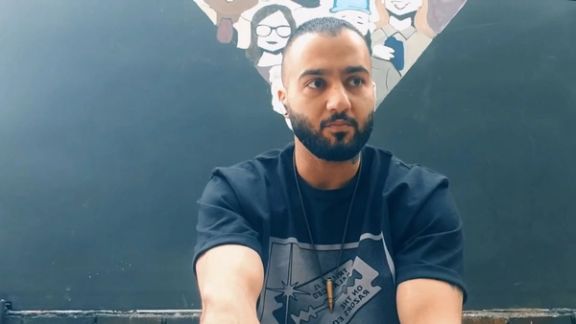
The government has also singled out artists and singers whose work was critical of ruling authorities and explicitly addressed either political or social themes, including rappers Saman Yasin and Toomaj Salehi, both arrested in October and charged with mohrabeh, or “enmity against God,”. Both men have undergone torture in custody.
Poet and filmmaker Baktash Abtin died a tragic and preventable death in custody on January 8, 2022, after authorities repeatedly refused to provide him needed medical care. Severe abuse was also recorded in the case of blogger Hossein Ronaghi, detained in late September, subjected to ill-treatment in custody and denied medical care.
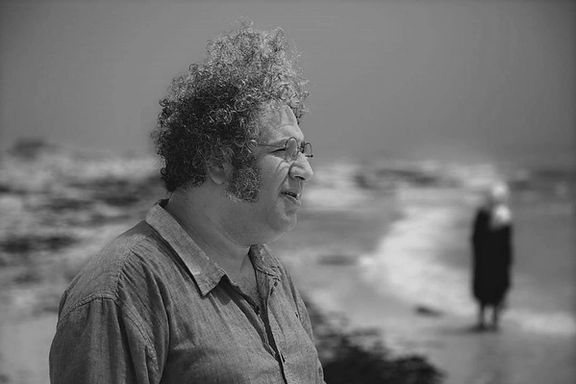
Shorter periods of detention have also been handed down to several dozen writers and poets supporting the protests, many of whom have also suffered torture and mistreatment in Iran’s brutal jails.
These have included the poet and theater director Amirhossein Barimani, literary writer and commentator Farshid Ghorbanpour, and poets Mona Borzouei, Behnaz Amani, Atefeh Chaharmahalian, Behrouz Yasemi and Saeed Heleichi.
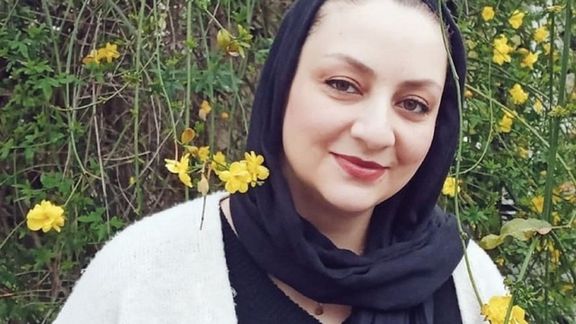
Writers advocating for ethnic or religious minority rights continue to be particularly targeted, including Kurdish language teacher and rights advocate Zahra Mohammadi, Kurdish researcher Mozghan Kavousi, and Bahai writer and poet Mahvash Sabet.
Since protests began in September, over 500 civilians have been killed by regime security forces with around 20,000 arrested. At least four executions have taken place for protesters and an unconfirmed number of many others sentenced to death for their role in the uprising.
Rights groups say executions last year rose by 75% on the previous year with at least 582 people put to death in 2022.
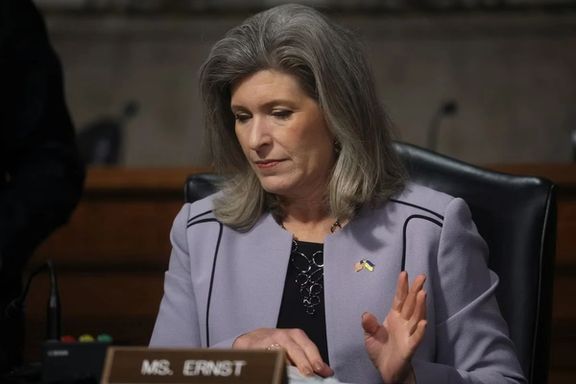
A bipartisan group of US senators have written to President Joe Biden, urging the administration to enable Homeland Security to seize Iranian oil and gas shipments.
Six democrats and six republicans, led by Joni Ernst (R-IA) and Richard Blumenthal (D-CT), told Biden that the Homeland Security Investigations (HSI) office has not been able to seize Iranian shipments for more than a year.
The DHS program that used to seize illegal Iranian oil, gas and petrochemical shipments had confiscated $228 million worth of fuel linked to the Revolutionary Guards’ extraterritorial Quds Force -- a designated Foreign Terrorist Organization and an arm of the Islamic Republic that continues to sponsor attacks on US citizens and servicemembers -- from 2019 until fiscal year 2022, when the Treasury cut off its funds. HSI's enforcement has been curtailed by policy limitations within the Department of Treasury's Executive Office for Asset Forfeiture.

Referring to the Treasury Department’s acknowledgment in 2020 that “Iranian petrochemical sales remain a key revenue source for the Iranian regime,” specifically the IRGC’s Quds Force, the senators called for bridging the enforcement gaps concerning Iranian petrochemical and petroleum sales. “Enforcement of sanctions against Iranian petrochemical and petroleum sales will defund terrorists' intent on harming the United States and our partners,” read the letter.
“Despite several additional sanctions issued against Iranian petrochemical and petroleum sales over the past year, the volume of Iranian oil exports from Iran from 2021 to 2022 increased by 35%, approximately 430 million barrels of oil, evading sanctions,” they said in the letter.
A few hours after the letter was released, Iran seized a Marshall Islands-flagged tanker in the Gulf of Oman, the latest in a series of seizures or attacks on commercial vessels. "While Iran is seizing ships, our own program is completely languishing," an aide to Ernst told Reuters.